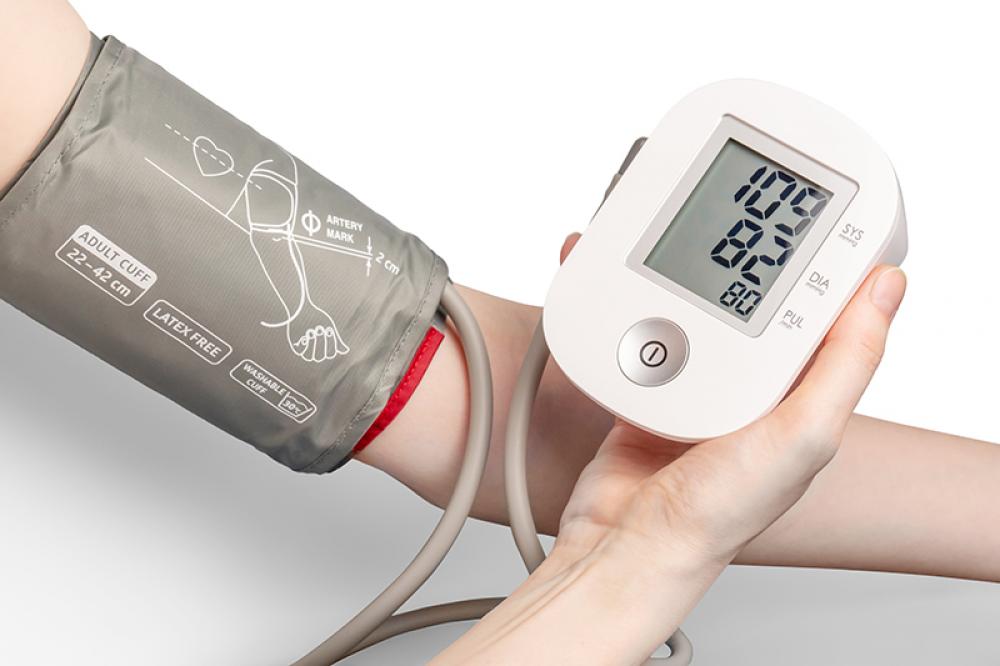Just Earth News | @justearthnews | 19 Sep 2023, 07:14 am Print
 Hypertension
Hypertension WHO report says proper hypertension treatment can avert 76 million deaths between 2023 and 2050. Photo Caption: Unsplash
A report released by the World Health Organization on Tuesday released a report which showed approximately 4 out of every 5 people with hypertension are not adequately treated, but if countries can scale up coverage, 76 million deaths could be averted between 2023 and 2050.
Hypertension affects 1 in 3 adults worldwide. This common, deadly condition leads to stroke, heart attack, heart failure, kidney damage and many other health problems.
The number of people living with hypertension (blood pressure of 140/90 mmHg or higher or taking medication for hypertension) doubled between 1990 and 2019, from 650 million to 1.3 billion. Nearly half of people with hypertension globally are currently unaware of their condition. More than three-quarters of adults with hypertension live in low- and middle-income countries.
Older age and genetics can increase the risk of having high blood pressure, but modifiable risk factors such as eating high-salt diet, not being physically active and drinking too much alcohol can also increase the risk of hypertension.
Lifestyle changes like eating a healthier diet, quitting tobacco and being more active can help lower blood pressure. Some people may need medicines that can control hypertension effectively and prevent related complications.
The prevention, early detection and effective management of hypertension are among the most cost-effective interventions in health care and should be prioritized by countries as part of their national health benefit package offered at a primary care level. The economic benefits of improved hypertension treatment programmes outweigh the costs by about 18 to 1.
“Hypertension can be controlled effectively with simple, low-cost medication regimens, and yet only about one in five people with hypertension have controlled it.” Said Dr. Tedros Adhanom Ghebreyesus, WHO Director-General. “Hypertension control programmes remain neglected, under-prioritized and vastly underfunded. Strengthening hypertension control must be part of every country’s journey towards universal health coverage, based on well-functioning, equitable and resilient health systems, built on a foundation of primary health care.”
The report is being launched during the 78th Session of the United Nations General Assembly which addresses progress for the Sustainable Development Goals including health goals on pandemic preparedness and response, ending tuberculosis and attaining Universal Health Coverage. Better prevention and control of hypertension will be essential to progress in all of these.
An increase in the number of patients effectively treated for hypertension to levels observed in high-performing countries could prevent 76 million deaths, 120 million strokes, 79 million heart attacks, and 17 million cases of heart failure between now and 2050.
“Most heart attacks and strokes in the world today can be prevented with affordable, safe, accessible medicines and other interventions, such as sodium reduction,” said Michael R. Bloomberg, WHO Global Ambassador for Noncommunicable Diseases and Injuries. “Treating hypertension through primary health care will save lives, while also saving billions of dollars a year.”
Hypertension can easily be treated with safe, widely available, low-cost generic medications using programmes such as HEARTS. WHO's HEARTS technical package for cardiovascular disease management in primary health care and the Guideline for the pharmacological treatment of hypertension in adults provide proven and practical steps to deliver effective hypertension care in primary health care settings.
Effective community- and country-wide blood pressure management can be achieved in countries of all income levels.
More than 40 low- and middle-income countries, including Bangladesh, Cuba, India and Sri Lanka, have strengthened their hypertension care with the HEARTS package, enrolling more than 17 million people into treatment programmes.
Countries such as Canada and South Korea delivered comprehensive national hypertension treatment programmes, and both countries surpassed the 50% mark for blood pressure control in adults living with hypertension.
Sustained, systematic national hypertension control programmes can succeed—and a high level of blood pressure control translates into fewer strokes and heart attacks, and longer, healthier lives.
The report underscores the importance of implementing WHO-recommended effective hypertension care to save lives, which include the following five components:
Protocol: practical dose- and drug-specific treatment protocols with specific action steps for managing uncontrolled blood pressure can streamline care and improve adherence.
Medication and equipment supply: regular, uninterrupted access to affordable medication is necessary for effective hypertension treatment; currently, prices for essential anti-hypertensive medicines vary by more than ten-fold between countries.
Team-based care: patient outcomes improve when a team collaborates to adjust and intensify blood pressure medication regimens per doctor orders and protocols.
Patient-centred services: to reduce barriers to care by providing easy-to-take medication regimens, free medications and close-to-home follow-up visits, and making blood pressure monitoring readily available.
Information systems: user-centred, simple information systems facilitate rapid recording of essential patient-level data, reduce health care worker data entry burden, and support rapid scale-up while maintaining or improving the quality of care.
“Every hour, more than 1 000 people die from strokes and heart attacks. Most of these deaths are caused by high blood pressure, and most could have been prevented,” said Dr Tom Frieden, President & CEO, Resolve to Save Lives. “Good hypertension care is affordable, within reach, and strengthens primary health care. The challenge now is to go from “within reach” to “reached.” This will require commitment of governments around the world.”
- Alarming projection: Global breast cancer cases could cross 3.5 million by 2050, shows study
- Exam stress to emotional distress: Study reveals the dark side of academic pressure
- Vegetarian diet linked to lower risk of five major cancers, study finds
- Ukraine’s health system under fire: Attacks spike 20% in 2025, WHO warns
- A dog’s loving lick turned deadly — She woke up without her limbs





-1763561110.jpg)
